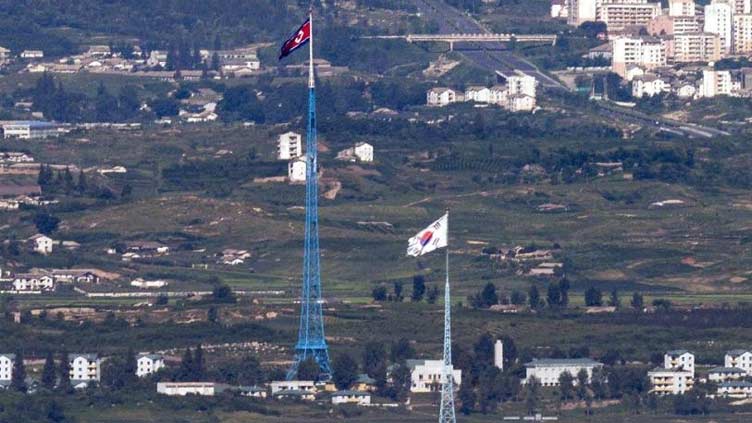S Korea's official defence document calls North 'enemy' again

World
The two countries remain technically at war since the 1950-53 Korean War
SEOUL (AFP) - South Korea called the nuclear-armed North its "enemy" in a defence document Thursday, the first time in six years it has used the term, signalling a further hardening of Seoul's position toward Pyongyang.
The two countries remain technically at war since the 1950-53 Korean War ended with an armistice rather than a peace treaty, and after the collapse of a rare round of diplomacy 2019, talks have stalled as Kim Jong Un doubles down on military development.
The North Korean leader declared his country an "irreversible" nuclear state last year, and carried out sanctions-busting weapons tests nearly every month, including firing its most advanced intercontinental ballistic missile (ICBM).
In response, Seoul's new conservative administration has ramped up joint drills with key security ally Washington, and in a new defence white paper referred to Pyongyang an "enemy" of the South.
North Korea "defined us as an 'undoubted enemy'" in December 2022, the document, officially released Thursday, said. "Therefore, the North Korean regime and the North Korean military, which are the main agents of the activities, are our enemy."
Analysts said the move illustrated the state of inter-Korean relations, which are "filled with confrontations", Yang Moo-jin, a professor at the University of North Korean Studies in Seoul, told AFP.
"It even gives the impression of a return to the Cold War era."
An Chan-il, a defector-turned-researcher who runs the World Institute for North Korea Studies, told AFP the move made sense as "Pyongyang last year passed a law enshrining the right to use preemptive nuclear strikes".
"Not doing anything in response would not have been appropriate," he added.
South Korea's bi-annual defence white paper first described Pyongyang as an enemy in 1994, after a North Korean official threatened to rain "a sea of fire" upon the South, and the term was used until around 2000.
It was dropped for a few years, but then reappeared in 2010 after North Korea was accused of sinking a South Korean warship, killing 46 seamen.
It was dropped again under Seoul's dovish former president Moon Jae-in, who championed engagement with Pyongyang.
South Korea's current president, Yoon Suk Yeol, took over from Moon in May last year, vowing to get tough on the

